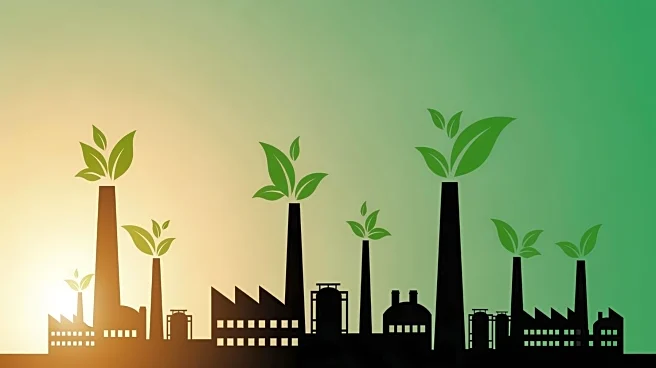What's Happening?
A fire broke out at the COP30 climate summit venue in Belém, Brazil, leading to the evacuation of over 50,000 delegates. The blaze occurred in the pavilion area of the former aerodrome, where world leaders
and policymakers were gathered to discuss global climate action. The incident interrupted the summit's final phase, which included discussions on tourism and climate impacts. The Brazilian government confirmed that the fire is under control and reported no injuries. The evacuation halted negotiations as nearly 200 countries were working to finalize agreements. Brazil's President, Luiz Inácio Lula da Silva, was scheduled to address the summit before the disruption.
Why It's Important?
The fire at COP30 highlights the vulnerability of large-scale international events to unforeseen disruptions, potentially affecting the progress of critical climate negotiations. The evacuation paused discussions that are crucial for global climate policy, impacting the ability of countries to reach consensus on urgent environmental issues. The incident underscores the importance of safety and contingency planning in international summits, where the stakes are high for global climate action. The temporary shift of control from the UN to Brazilian authorities for safety checks reflects the need for robust emergency response protocols.
What's Next?
The UN has yet to confirm the cause of the fire or its impact on the summit's final outcomes. As safety checks are completed, negotiations are expected to resume, with delegates eager to finalize agreements on climate action. The incident may prompt discussions on improving safety measures at future international events. Stakeholders, including government officials and environmental groups, will likely push for transparency regarding the fire's cause and any potential delays in the summit's agenda.








